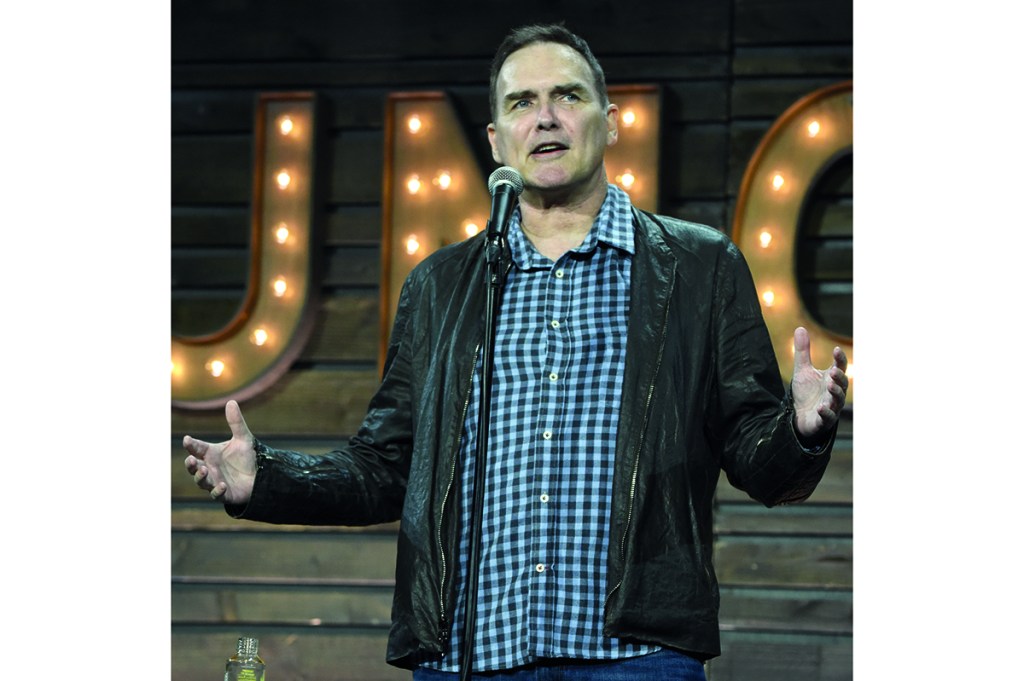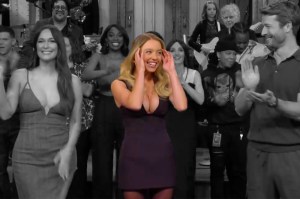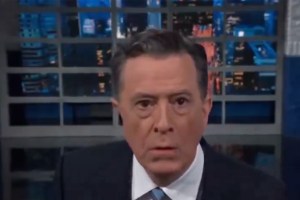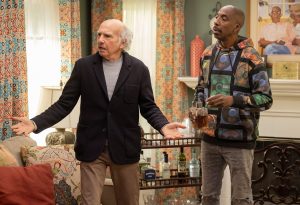The biggest threat to the comedian of yesteryear was penury, but today even the most famous must dodge slaps, tackles and professional ruin. As a result, many have assumed a defensive posture. But on September 15, 2021, the court jesters were more defensive than ever. Norm Macdonald had perished twenty-four hours earlier, defeated by leukemia, and a chorus of his peers donned headsets to reassure the podcast world they’d “had no idea he was sick.”
The one who spoke loudest was Conan O’Brien. Three months before O’Brien had wrapped his three-decade run on late night without a peep from the best guest he ever had: the man who gave us the Moth joke, “b-o-r-e-d,” Swedish-German and “that means he had sex with Madonna without a condom.”
Norm’s untimely death at sixty-one put to rest the conspiracy theories that O’Brien had left him off the roster because he didn’t want to be upstaged at the finale. What made his appearances so memorable was the versatility: he mastered every format — the around-the-barn anecdote, the one-liner or the old-school joke. I have heard variations of the moth joke dating back to middle school, but only Macdonald saw the potential to turn it into Russian literature. He could even make a child’s funeral funny — “Ladies and gentlemen, bereaved relatives, youngsters… and finally, of course, the guy hanging around at the door wearing a Carolina Panthers jacket who is clearly in the wrong room but has the grace to hang in here till the end: I thank you all for coming.”
“A joke should catch people by surprise; it should never pander. Applause is voluntary, but laughter is involuntary,” Norm recalled in the greatest work of fiction in the aughts, Based on a True Story. He hated lazy comedy that played for “clapter,” but also shock for shock’s sake. That may seem odd for a man who was banned from the state of Iowa in 1997 and took to the Dennis Miller radio show with his “virulent anti-Semite” ventriloquist dummy. (“My Jewish friend says I should just burn him, but I say two wrongs don’t make a right.”) Anybody can use profanity, but it takes true comedic genius to turn cliché into punchline. Macdonald recognized that plainspoken folk wisdom could surprise in a postmodern age dominated by euphemism and jargon — which made his “fake news” stint at Weekend Update legendary, right up until he was fired for the O.J. jokes.
He was willing to pulverize all we hold dear in modern America, from the Last Comic Standing stand-up who “bravely” insulted Christianity — “I don’t think it’s funny” — to the idea that “teachers are the real heroes,” a staple bit that achieved infamy when a teacher heckled him. “You gotta admit that guy who put the flag in Iwo Jima, he’s close… I know it’s not Grade 11 biology, but it’s something. It’s something,” responded Macdonald, the schoolteachers’ son.
His closest friends recalled his humility. Just about the only thing in his life he seemed to take credit for was the gambling addiction that bankrupted him on multiple occasions. In his fake memoir, he attributes his comedic philosophy to Saturday Night Live writer Jim Downey and Lori Jo Hoekstra, the assistant who co-produced all of his ventures right up until his final routine, Nothing Special.
The ninety-minute program is now available on Netflix. Macdonald sits in front of a white curtain, using what looks like a laptop camera and a microphone he bought himself. He opens with clichés — air travel, of course — and happens upon a takedown of Freud, recounting a conversation with a friend who mistakes the Viennese doctor’s popsicle-stick philosophy for intellectual depth. Norm then launches into a several-minute tangent that hits on feminism and grocery stores, and delivers a moving tribute to his octogenarian mother before trailing off.
“I don’t know what my point is really,” he says, lost in thought. “Oh yeah, I know! I don’t want to suck her tits… maybe that makes me shallow.”
That’s how Norm ended a four-decade career. Those left behind can find solace in the surveillance economy: my phone pings me daily with new clips and montages posted to YouTube, and for once I am grateful to the algorithmic oligarchs. One year after his death, comedians are grateful for their encounters with history’s greatest stand-up. Shane Gillis, the would-be SNL cast-member, recalled Macdonald’s kind words after he was ousted by a bitter Twitter mob: “In a war for comedy, I think the ones with jokes will win.” It may be the closest Norm ever came to optimism.
This article was originally published in The Spectator’s September 2022 World edition.


















